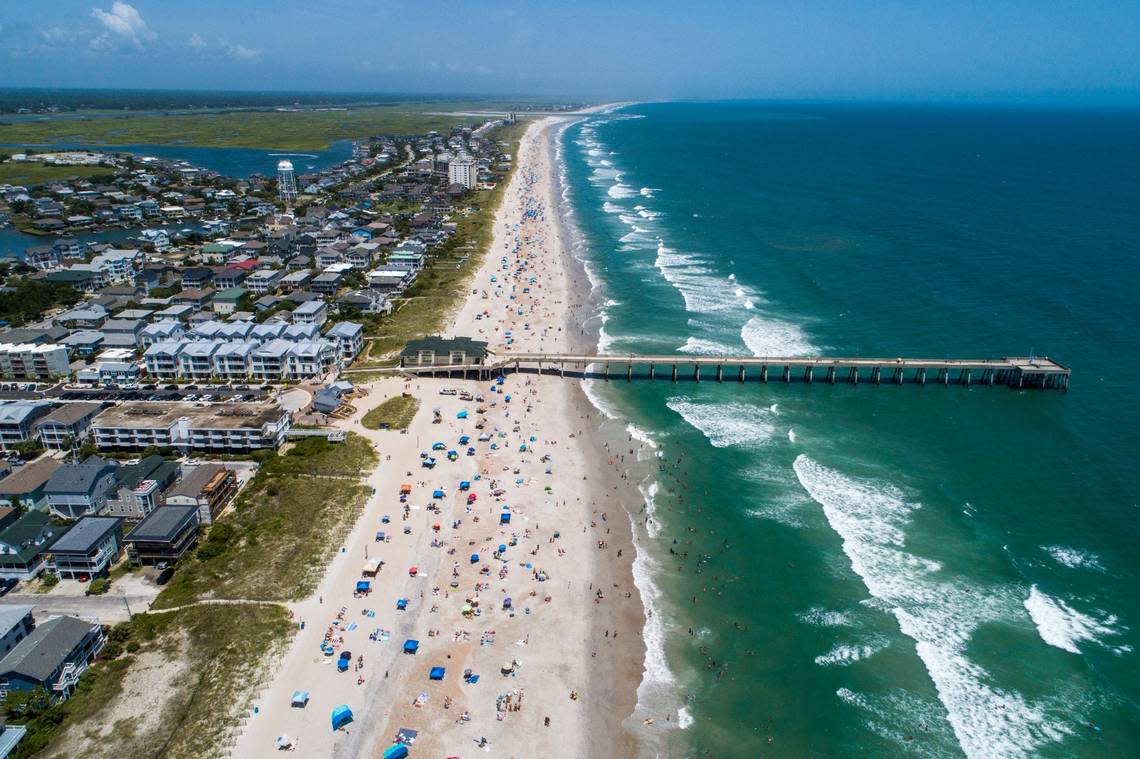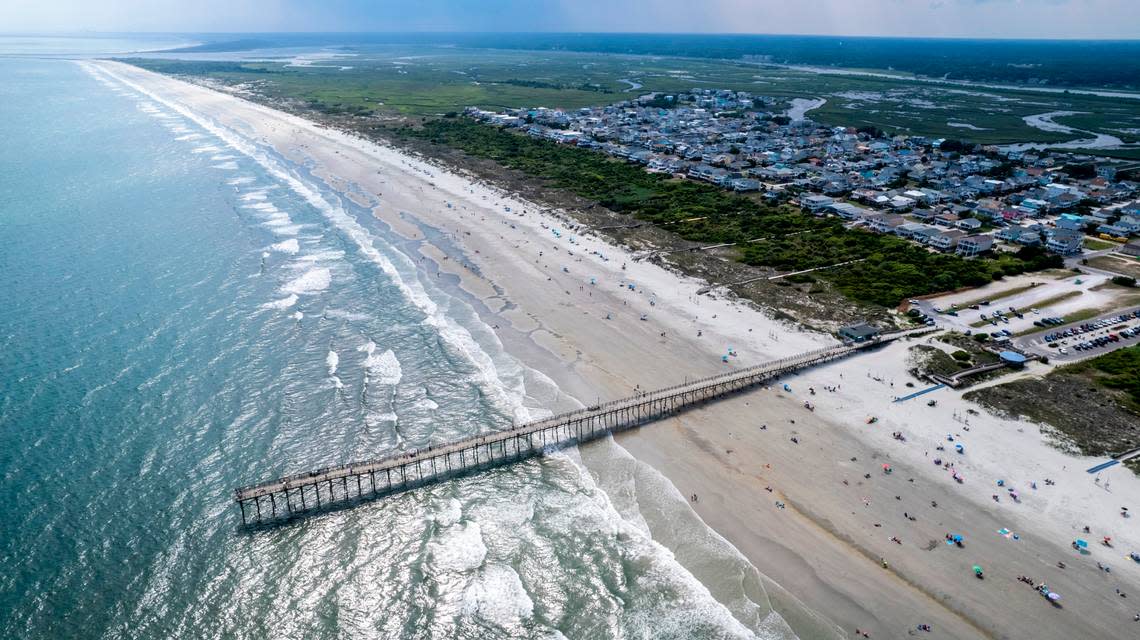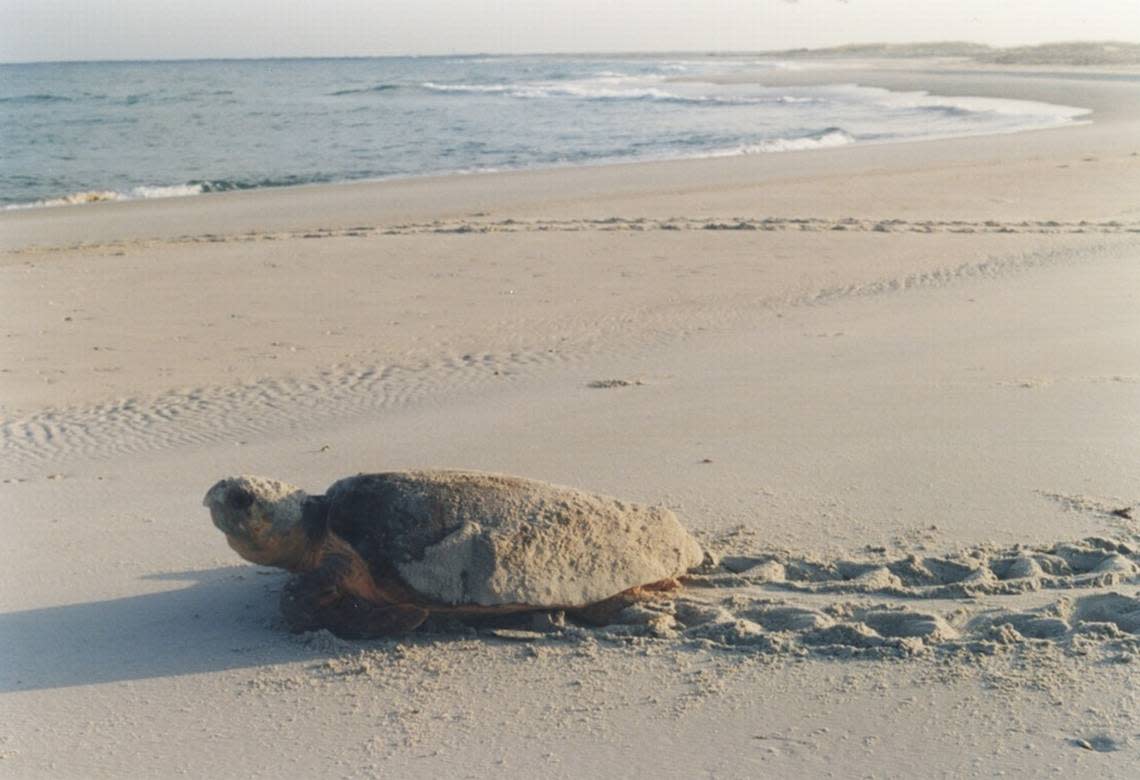From naked butts to cigarette butts, you need to know these NC beach rules
North Carolina’s 300 miles of public ocean beaches attract more than 11 million visitors each year. The snippish tone on beach communities’ social media pages this summer suggests some beachgoers bring everything on vacation but their manners.
People from away — Dingbatters, as they’re joked about on Ocracoke Island — may misbehave just because they don’t know any better.
Most of the more than two dozen oceanfront municipalities in the state have ordinances governing beach behavior, meaning violators can be fined, even if they rarely are. There are variations, so it’s worth checking the website of the town where you’re headed before you dig a crater in the sand or plan a seaside wedding by firelight.
To quote the town of Emerald Isle’s motto, “Nice Matters.” Here’s how to make sure you’ll be welcomed back next year.
What to take to — and from — the beach
▪ Pets are allowed sometimes at some beaches, but may be restricted by time of year or time of day. For example, Sunset Beach town leaders grump that, “It’s no fun to have wet, sandy dogs shaking on you while you are sunbathing,” and proclaim their strand a pup-free zone from 8 a.m. to 6 p.m. on the Friday before Memorial Day until Labor Day.
All beaches require owners to collect and dispose of their pets’ poop, which can be bagged and dropped gingerly into trash cans near crossovers.
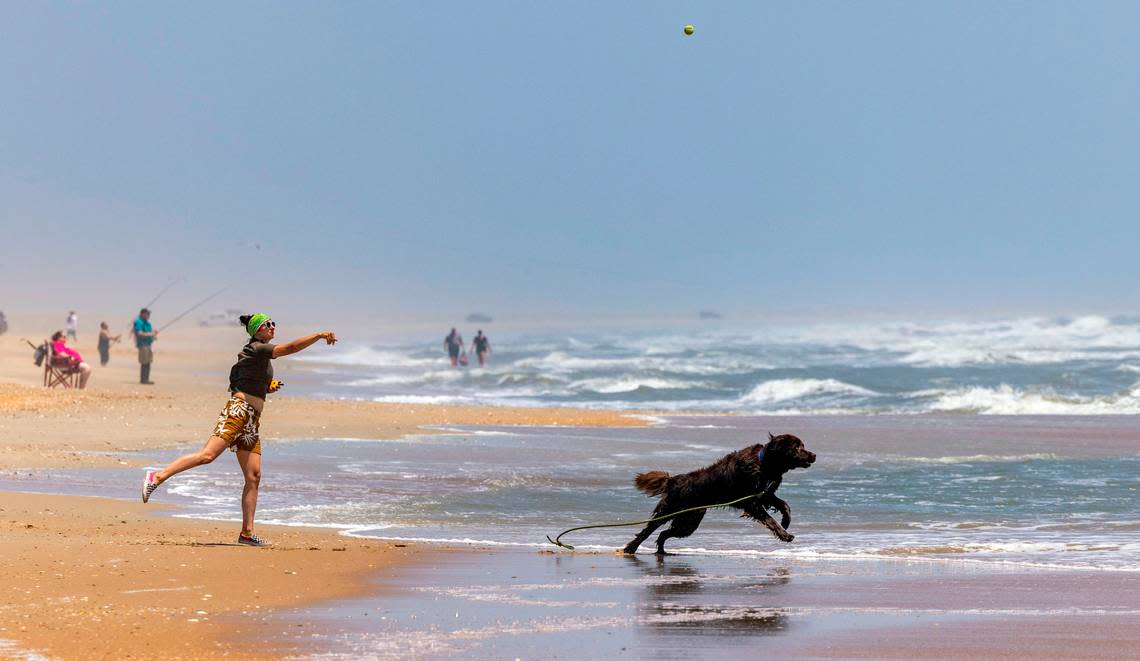
▪ Umbrellas, tents and other sun shades are allowed on North Carolina beaches, but this year in particular people are complaining of a lack of regard for personal space. If there’s room, don’t stake your shade so close to someone else that you can tell what brand of sunscreen they use.
▪ Beach gear is almost never allowed to be left on the strand overnight, and can be tossed by lifeguards or other town workers. If your cabana collapsed, your umbrella inverted or your chair finally rusted through, jam it angrily into the trash barrel yourself.
▪ Leave room for emergency vehicles and beach patrols, which need about 10 feet of space in front of the dune line for their four-wheel drive trucks.
▪ Leave no trace, taking with you everything you brought to the beach. You can also take all the seashells you can carry, as long as none contain live animals.
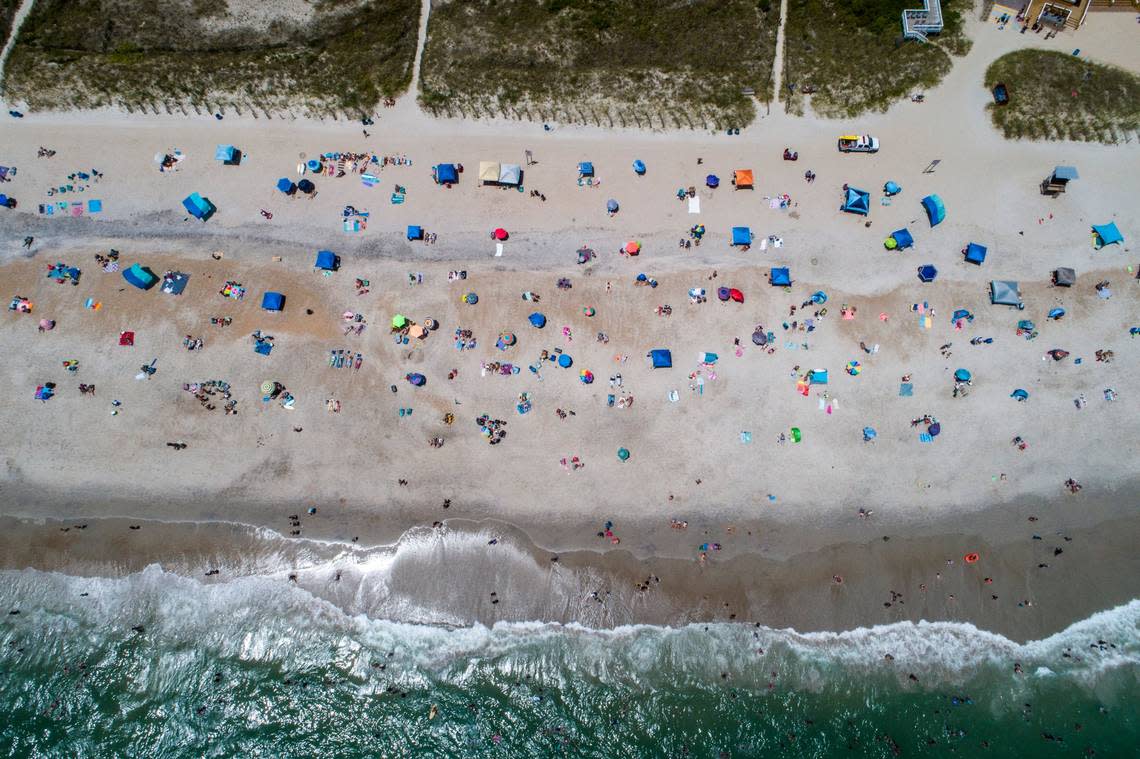
Don’t be a Dingbatter
▪ Stay off the dunes. Walk only on established crossover paths to avoid destroying vegetation. It holds in place the sand that helps protect barrier islands from storms.
▪ Smoking is prohibited on Wrightsville Beach but allowed on many other beaches. Placing cigarette butts in the sand is littering. It’s also nasty and is prohibited at all N.C. beaches.
▪ Alcohol consumption on the beach is prohibited on Wrightsville Beach but is allowed at Nags Head and many others. All beaches prohibit glass containers and some also ban cans.
▪ Lifeguards aren’t posted at all beaches and even where they’re available, they can’t watch everybody all the time. Don’t swim alone and don’t let children play in the water far from your reach. Take note of colored beach flags that indicate high risk of hazards. A single red flag usually means a strong rip currents are present. Double red means don’t go in the water except to wade along the edge.
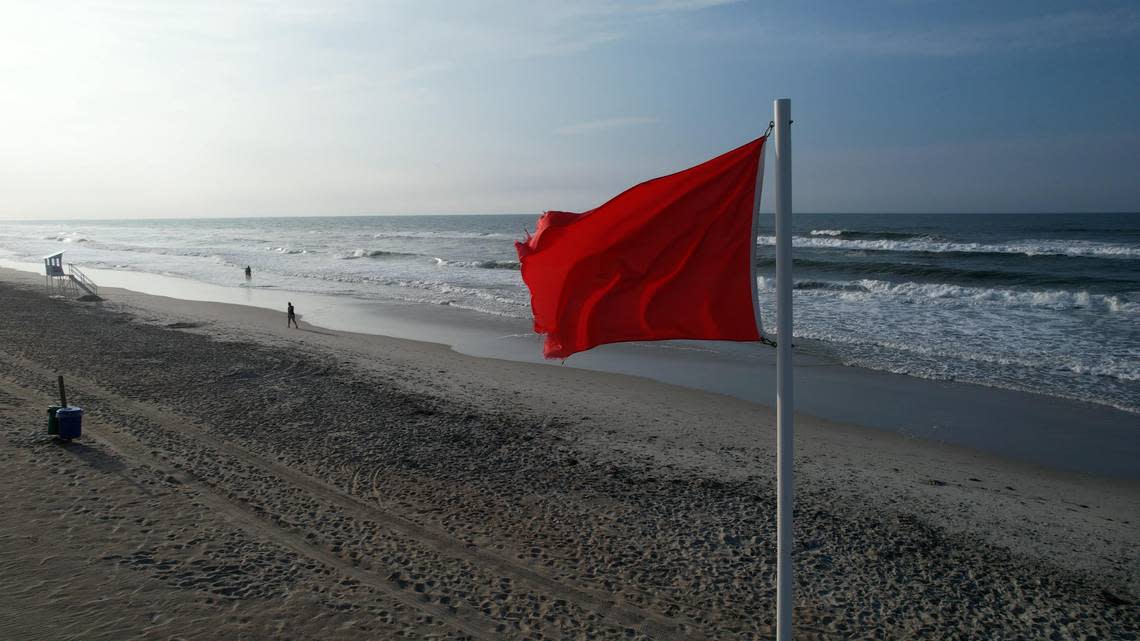
▪ Nudity is not allowed on public North Carolina beaches, no matter how few people are around to see it. Rangers who patrol beaches within the Cape Hatteras and Cape Lookout national seashores enforce state law, which requires male and female genitalia be covered. Under state law, breasts and butt cheeks are not considered genitalia. However, many municipalities have ordinances requiring tops for women, though not for men.
▪ Digging in the sand is therapeutic, up to a point. Holden Beach and some others prohibit digging more than a foot deep, and require all excavators fill their holes back in. Big cavities left on the beach become hazards for nesting sea turtles, human pedestrians and emergency vehicles.
▪ Sea turtles are a protected species. It’s illegal to harass the animals or disturb their nests. If you see volunteers gathered around a marked nest, they may be expecting it to “boil” and the babies to emerge. You’re welcome to sit with them and watch.
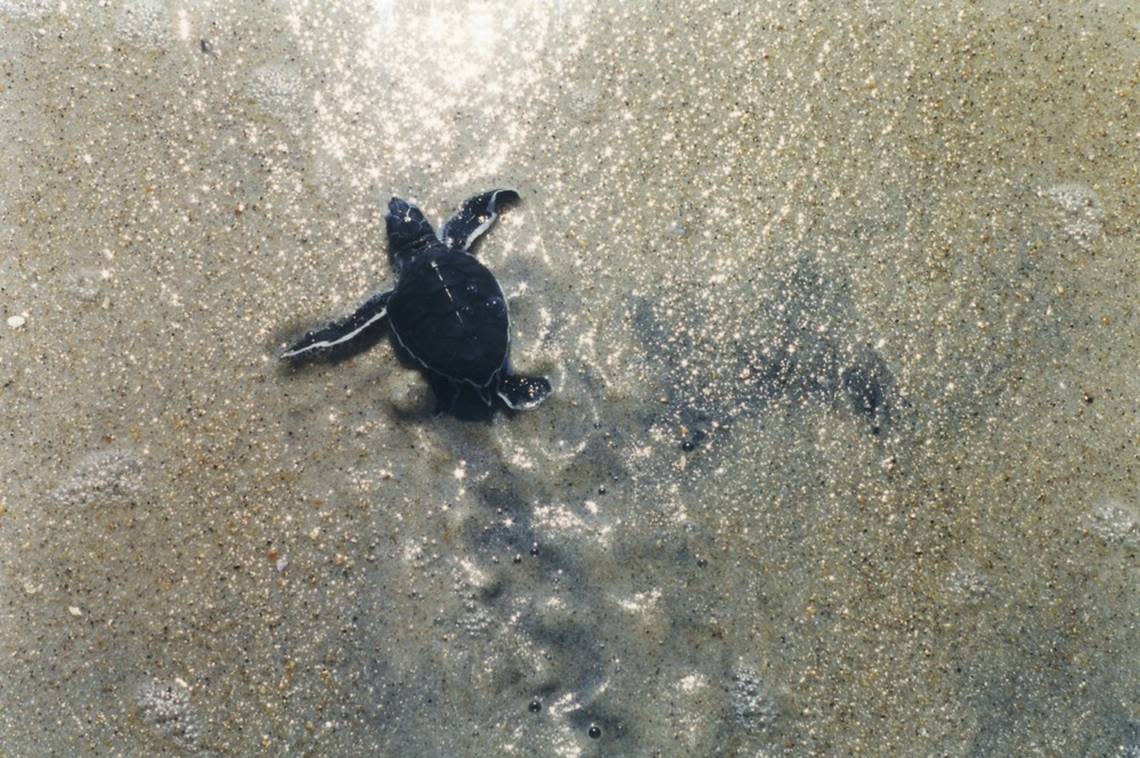
▪ Nighttime beach walks are fun, but during sea turtle nesting season (mid-May through August), wildlife experts say flashlights can confuse the majestic mothers and their tiny hatchlings.
▪ Driving on the beach generally is not allowed during the summer tourist season, but some beaches allow four-wheel drive vehicles on the sand by permit in the fall and winter.
▪ Beach weddings are extra romantic and photogenic, but may require a permit from local government.
▪ Fireworks are illegal at most N.C. beaches.
▪ Bonfires are prohibited on most N.C. beaches though a few allow the use of gas grills.
